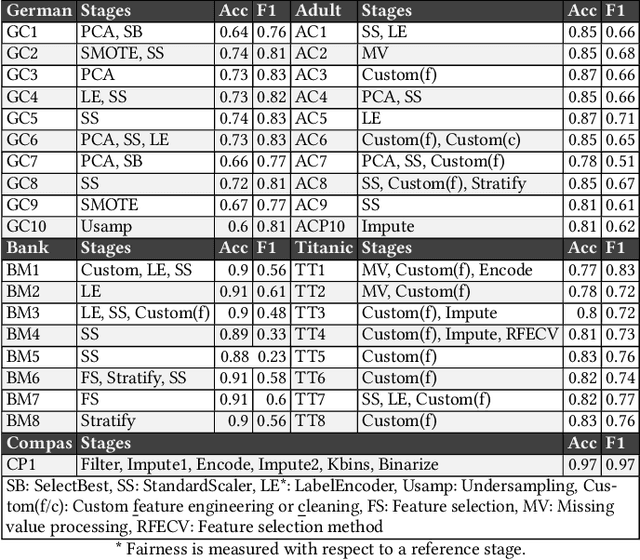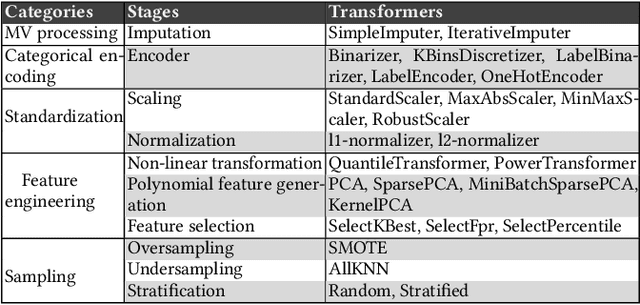Fair Preprocessing: Towards Understanding Compositional Fairness of Data Transformers in Machine Learning Pipeline
Paper and Code
Jun 18, 2021



In recent years, many incidents have been reported where machine learning models exhibited discrimination among people based on race, sex, age, etc. Research has been conducted to measure and mitigate unfairness in machine learning models. For a machine learning task, it is a common practice to build a pipeline that includes an ordered set of data preprocessing stages followed by a classifier. However, most of the research on fairness has considered a single classifier based prediction task. What are the fairness impacts of the preprocessing stages in machine learning pipeline? Furthermore, studies showed that often the root cause of unfairness is ingrained in the data itself, rather than the model. But no research has been conducted to measure the unfairness caused by a specific transformation made in the data preprocessing stage. In this paper, we introduced the causal method of fairness to reason about the fairness impact of data preprocessing stages in ML pipeline. We leveraged existing metrics to define the fairness measures of the stages. Then we conducted a detailed fairness evaluation of the preprocessing stages in 37 pipelines collected from three different sources. Our results show that certain data transformers are causing the model to exhibit unfairness. We identified a number of fairness patterns in several categories of data transformers. Finally, we showed how the local fairness of a preprocessing stage composes in the global fairness of the pipeline. We used the fairness composition to choose appropriate downstream transformer that mitigates unfairness in the machine learning pipeline.
 Add to Chrome
Add to Chrome Add to Firefox
Add to Firefox Add to Edge
Add to Edge